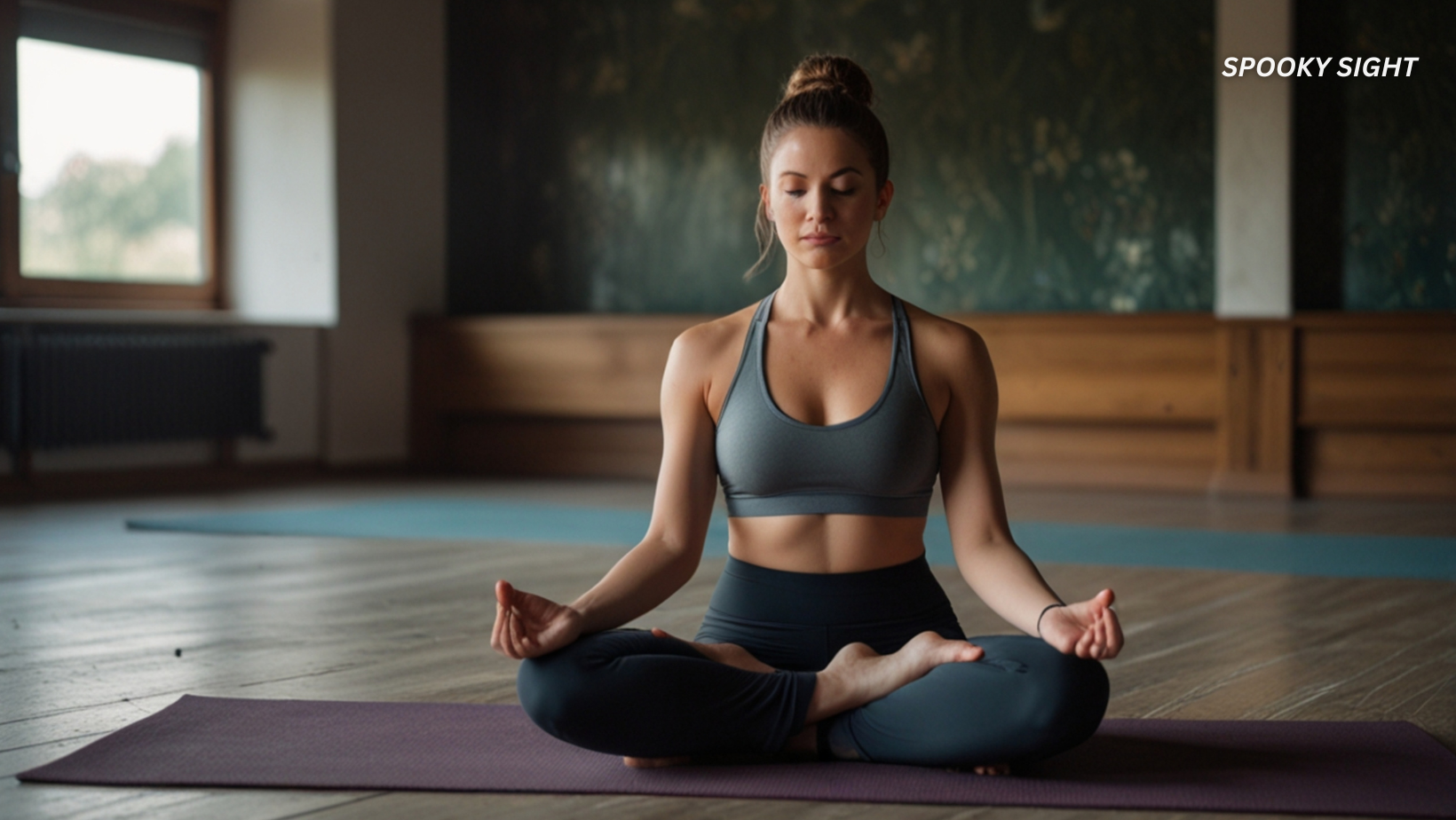Insomnia—that nightly thief of peace and productivity—is far more common than many of us realize. Around a third of adults struggle with it, tossing and turning while the rest of the world sleeps soundly. But before reaching for sleeping pills or elaborate bedtime rituals, consider something surprisingly simple: movement.
Yes, movement. Not the sweaty, high-impact kind you find in a gym commercial, but something much gentler and more accessible. According to a wide-reaching review of 22 studies involving over 1,300 adults, just four types of low-effort exercise seem to hold particularly promising results for improving sleep quality: yoga, Tai Chi, walking, and jogging.
These aren’t fitness fads. They’re time-tested activities that require little to no equipment, can be done almost anywhere, and come with a host of physical and mental benefits that extend far beyond sleep.
Why Movement Matters When It Comes to Sleep
Let’s take a step back. The link between physical activity and better sleep has been well-established for years. Exercise reduces stress hormones like cortisol, increases endorphins (your brain’s feel-good chemicals), and helps regulate your body’s internal clock—known as the circadian rhythm.
But what makes this latest study particularly valuable is its focus on specific types of movement rather than exercise in general. It’s one thing to know that being active helps; it’s another to know which activities work best when your brain refuses to switch off at night.
Here’s what the researchers found:
1. Yoga: Breathe, Stretch, Sleep
If you’ve ever rolled out a mat and eased into a child’s pose, you know yoga isn’t just about touching your toes. It’s about creating stillness in motion—slowing the mind by moving the body with intention. And that’s exactly what makes yoga such a powerful tool against insomnia.
The study suggests that yoga can increase total sleep time and improve how people feel about their sleep. This is likely thanks to the practice’s emphasis on body awareness, slow breathing, and mindfulness. By focusing attention inward and calming the nervous system, yoga may help reduce anxiety, a common barrier to restful sleep.
Even more fascinating is the science behind this: yoga has been shown to boost GABA activity in the brain. GABA is a neurotransmitter that helps quiet brain activity, allowing you to wind down. It also appears to reduce activity in the amygdala, the brain’s “fear center,” which often goes into overdrive when we’re stressed or anxious—two major culprits behind sleepless nights.
2. Tai Chi: Meditation in Motion
Tai Chi might look like a slow-motion martial arts dance—and in a way, it is. Originating in China, this gentle series of flowing movements is deeply rooted in balance, breath, and awareness. And according to this study, it may be the real MVP when it comes to long-term sleep improvement.
Researchers found that Tai Chi was associated with higher sleep quality, faster sleep onset, and even an average of 50 minutes more sleep per night. That’s nearly an extra hour of rest without the grogginess that often follows medication-based sleep aids.
What’s more, Tai Chi isn’t physically demanding. It’s low-impact and easy on the joints, making it especially appealing for older adults or those with limited mobility. Plus, it helps train the body to relax on command—a skill insomniacs could certainly benefit from.
Read more: Highly Intelligent People Steer Clear of People With These Traits
3. Walking: The Underrated Sleep Ally
Walking might seem too simple to make a difference, but don’t underestimate its power. It’s free, flexible, and can be seamlessly built into your daily routine—whether it’s a short stroll around the block or a longer walk through the park.
The magic of walking lies in its ability to gently elevate the heart rate and burn excess energy, which helps cue your body that it’s time to rest later. Walking also helps regulate melatonin, the hormone that signals sleepiness when it gets dark outside.
Not to mention, walking—especially outdoors—offers a natural dose of sunlight, which helps set your body’s internal clock. Regular exposure to daylight helps reinforce a healthy circadian rhythm, reducing the confusion that can lead to sleep delays or nighttime awakenings.
Bonus: If you walk in nature, you’re also likely to lower stress levels and blood pressure, which double up as excellent bedtime prep.
Read more: Signs That Mean Your Relationship Conflict Is Doing More Harm Than Good
4. Jogging: Move a Bit More, Sleep a Bit Better
Jogging brings the same benefits as walking, just at a slightly faster pace. You don’t need to be a marathon runner to reap the rewards—even light jogging can help improve sleep efficiency, reduce daytime sleepiness, and lower the chances of waking up during the night.
For those who find themselves wide-eyed and wired in the evenings, jogging can help release built-up tension and leave you feeling physically satisfied, which can make it easier to drift off.
But timing matters: jogging too close to bedtime can actually rev you up, so it’s usually best done in the morning or late afternoon.
How These Exercises Compare to Other Treatments
The researchers also compared these sleep-friendly exercises to a few other common approaches:
- Cognitive Behavioral Therapy (CBT) – Often considered the gold standard for treating insomnia, but not always accessible to everyone due to cost or availability.
- Massage and acupuncture – Effective for some, but not conclusive across the board.
- Sleep hygiene – Helpful habits (like limiting caffeine or avoiding screens before bed), but they may not be enough on their own.
In comparison, the physical activities studied—especially Tai Chi and yoga—offered notable, lasting improvements in sleep, especially when practiced regularly.
Why Better Sleep Really Matters
Insomnia isn’t just annoying—it can wreak havoc on your health. Poor sleep has been linked to memory problems, weakened immunity, anxiety, depression, and even an increased risk of dementia later in life. While insomnia might not directly cause these conditions, it often exacerbates them or makes them harder to manage.
Even in the short term, the effects are felt hard: brain fog, irritability, and that dragging, hollow feeling that no amount of coffee can fix.
By adopting a gentle exercise routine, you may not just sleep better—you might feel more focused, energized, and emotionally balanced throughout the day. And it doesn’t have to be complicated. A few minutes of slow breathing in a yoga pose, a short walk after dinner, or a morning Tai Chi session could be all it takes to start reclaiming your nights.
Real People, Real Results: A Quick Glimpse
Let’s meet a few fictional-but-relatable folks who tried these methods:
- Linda, 52, accountant – Struggled with anxiety and frequent night waking. After adding 20 minutes of Tai Chi to her mornings, she reported deeper sleep and fewer early wakeups.
- Rafael, 29, tech support rep – Found jogging helped clear his mind after work. “It gives me a break from screen time, and I fall asleep without overthinking,” he says.
- Jasmine, 34, new mom – Yoga before bed became her mini self-care moment. “It’s the only time my brain quiets down,” she shared. “And that’s priceless.”
Read more: Gentle Clues That Someone May Be Carrying Loneliness in Silence
The Bottom Line: Move Gently, Sleep Soundly
If you’ve been battling insomnia, these four easy exercises could be a great place to start. They don’t cost a dime, don’t require fancy gear, and—best of all—they come with no side effects (unless you count feeling more refreshed in the morning).
Sleep isn’t a luxury—it’s a necessity. And sometimes, the simplest tools are the most powerful.
So next time you’re lying in bed wide awake, consider this: maybe all it takes to fall asleep… is a little movement during the day.
Image: Freepik.









